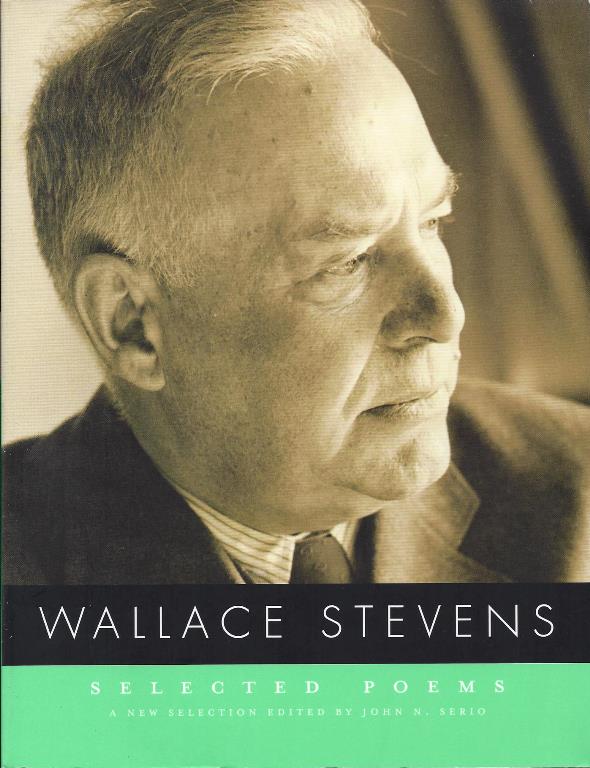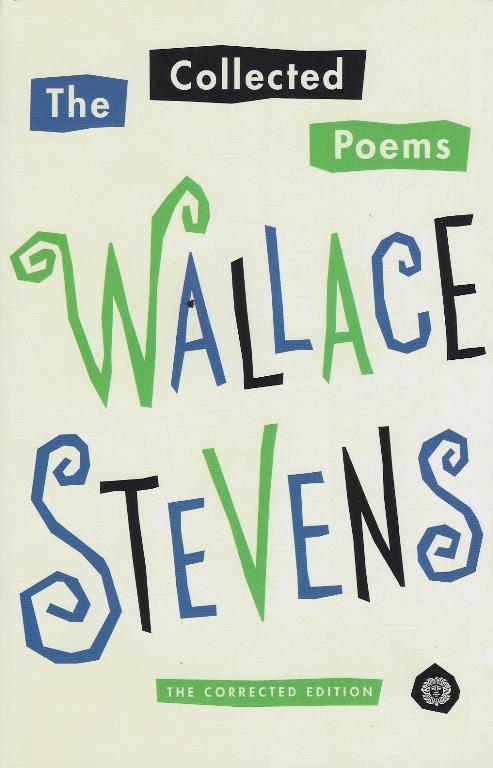
|
GALLANT CHATEAU
Is it bad to have come here And to have found the bed empty? One might have found tragic hair, Bitter eyes, hands hostile and cold. There might have been a light on a book Lighting a pitiless verse or two. There might have been the immense solitude Of the wind upon the curtains. Pitiless verse? A few words tuned And tuned and tuned and tuned. It is good. The bed is empty, The curtains are stiff and prim and still. Tòa lâu đài “ga lăng”
Tệ thật, mò tới đây Và thấy cái giường trống trơn Một tên Gấu nào đó có thể tìm thấy Tóc bi đát Mắt đắng cay Tay, thù nghịch và lạnh toát Có thể có ánh sáng trên trang sách Chiếu một, hoặc hai câu thơ tàn nhẫn Hẳn là có, có chắc không đấy, Một nỗi cô đơn bao la, vô cùng Của gió trên những bức màn Thơ tàn nhẫn? Vài từ, cứ thế vòng vòng, Vòng vòng, Vòng vòng Cũng tốt thôi. Ấy là nói về cái giường trống trơn Những bức màn cứng đơ, làm ra vẻ đoan trang, mần thinh THE READER
All night I sat reading a book, Sat reading as if in a book Of sombre pages. It was autumn and falling stars Covered the shrivelled forms Crouched in the moonlight, No lamp was burning as I read. A voice was mumbling, "Everything Falls back to coldness, Even the musky muscadines, The melons, the vermilion pears Of the leafless garden." The sombre pages bore no print Except the trace of burning stars In the frosty heaven. Độc giả
Suốt đêm tớ ngồi đọc sáchNgồi đọc, như thể trong sách Những trang u tối Đó là mùa thu và những ngôi sao rụng Bao phủ những hình dáng khô héo Ẩn náu dưới ánh trăng Không một ngọn đèn, khi tớ đọc Một tiếng nói lầm lầm, “Mọi thứ trở lại lạnh giá” Ngay cả nho sạ Dưa hấu, lê đỏ Nơi vườn trơ trụi lá Những trang u tối không thấy chữ Ngoại trừ dấu vết những ngôi sao cháy bỏng Nơi thiên đàng sương giá. TO THE ROARING WIND
What syllable are you seeking, Vocalissimus, In the distances of sleep? Speak it. Gửi Gió Hú
Mi kiếm chữ gì, tiếng gì?Vocalissimua? Ở nơi những khoảng sâu sâu vắng của giấc ngủ? Hãy phán 1 phát coi! 
THE POEM THAT TOOK THE PLACE OF A MOUNTAIN
There it was, word for
word, The poem that took the place of a mountain. He breathed its oxygen, Even when the book lay turned in the dust of his table. It reminded him how he had needed A place to go to in his own direction, How he had recomposed the pines, Shifted the rocks and picked his way among clouds, For the outlook that would be right, Where he would be complete in an unexplained completion: The exact rock where his inexactnesses Would discover, at last, the view toward which they had edged, Where he could lie and, gazing down at the sea, Recognize his unique and solitary home. Bài thơ chiếm trái núi
[Dịch] theo kiểu dùi đục chấm mắm cáy, “mô tà mô” [mot-à-mot, word for word] Thì đúng là, bài thơ đá đít trái núi, và chiếm chỗ của nó. Nó thở không khí của trái núi Ngay cả khi cuốn sách ở trên bàn biến thành bụi Nó nhắc nhở, bài thơ cần, ra làm sao, như thế nào Một nơi chốn để đi, theo cái hướng của riêng nó Như thế nào, nó tái cấu trúc những ngọn thông Bầy biện lại những hòn đá, và kiếm ra con đường đi của nó, giữa những đám mây Viễn cảnh mà nói, thì OK Một khi mà nó hoàn thiện, trong cái hoàn thiện không thể nào giải thích được Đúng cục đá, khi cái không đúng của nó Sẽ khám phá, vào lúc sau cùng, cái nhìn mà theo đó, chúng xen vô Nơi nó sẽ nằm, và nhìn xuống biển Nhận ra căn nhà độc nhất, cô đơn của nó. Note: Bài thơ thần sầu, tuyệt cú mèo. Gấu dịch hơi bị nhảm, nhưng "có còn hơn không", hà, hà! GCC đọc Wallace Stevens, là do bà Thụy Khê Yankee mũi lõ, xúi DECEMBER 7 [1997]
Wallace Stevens and Joni Mitchell It is getting on to winter, and I almost cannot say so to myself without thinking of that lyric from Joni Mitchell's Blue: It's coming on Christmas They're cutting down trees They're putting up reindeer And singing songs of joy and peace- With its surprising chords and its sudden, unexpected leap to the chorus: Oh I wish I had a river I could skate away on. It is a song about romantic loss and about
Christmas blues. People of my generation will also remember
that it is about the mood of the country during the Vietnam War,
when so many of the young felt helpless before the violence their
government had unleashed across the world. The season and that leap
in the song made me think of one of the most haunting American poems
of the twentieth century. It's Wallace Stevens's "The Snow Man."
It comes differently to its unexpected conclusion. It seems to arrive
there almost inevitably, in the unwinding of its syntax, and leaves
most readers blinking at what they have come to. Here it is:
The Snow Man
One must have a mind of winter
To regard the frost and the boughs Of the pine-trees crusted with snow; And have been cold a long time To behold the junipers shagged with ice, The spruces rough in the distant glitter Of the January sun; and not to think Of any misery in the sound of the wind, In the sound of a few leaves, Which is the sound of the land Full of the same wind That is blowing in the same bare place For the listener, who listens in the snow, And, nothing himself, beholds Nothing that is not there and the nothing that is. Người tuyết
Một người phải có cái đầu của mùa
đông
Để nhìn sương giá, và những cành thông Bẹp dí tuyết Và phải quen với cái lạnh một thời gian dài Để ôm cây đẫm băng, Những cây vân sam xù xì, lấp lánh từ xa Của mặt trời tháng Giêng Và không nghĩ tới Bất cứ một khốn cùng Trong tiếng gió Trong tiếng lá Là tiếng đất Đẫm cùng ngọn gió Thổi qua cũng mặt đất trần trụi Đối với 1 người nghe Trong tuyết Hư vô, chính mình Cầm giữ Hư vô Cái hư vô chẳng có ở đó Cái hư vô, như nó là This comes from a really splendid new edition
of Wallace Stevens, Collected Poetry and Prose, published by
the Library of America. It's the best single volume of his work
to appear, though it isn't as beautiful as the old Knopf hardback
Collected Poems. But all the poems are in the Library of America
edition, and the essays on poetry, and selections from the letters,
and the aphorisms, the best known of which, I suppose, are "Money
is a kind of poetry" and "The greatest poverty is not to love in the
physical world." But there are others: "The tongue is an eye." "A poem
is a pheasant." It would make a resplendent holiday gift.
That takes care of my seasonal duties. Now look back at that wintry poem, bright as ice. In college, I remember, we argued for hours about what those last lines meant, as if the chill of the poem and its enormous clarity would not quite let go of us. In the way that Joni Mitchell's song has its historical context, so, I suppose, does Stevens's poem. He belonged to the generation of writers-all of the modernists did-who had to address the ways in which the Christian idea, or at least the Protestant and transcendentalist idea, of a divinity in nature had lost its hold on their imagination. "We live," the woman in his poem "Sunday Morning" muses, "in an old chaos of the sun." When Stevens went to college in the early 1900s, aestheticism was in the air. He was a boy from solid Lutheran and German stock-Pennsylvania Dutch, as it was called-and his mother could still speak the Pennsylvania Dutch dialect to the farm women who came to Reading to sell their produce on Saturdays. He has what must be a poem to his mother, explaining his conversion to French poetry: Explanation
Ach, Mutter
This old, black dress,
I have been embroidering French flowers on it. Not by way of romance, Here is nothing of the ideal, Nein, Nein. It would be different, Liebchen, If I had imagined myself, In an orange gown, Drifting through space, Like a figure on a church-wall. He was going to have to manage in a world without angels, and he thought about this subject for the rest of his long life as a poet and an executive of the Hartford Insurance Company. He was sure that the solution to the problem of the loss of what he called the "romance" of the ideal was imagination, which in one of his rare essays he calls "the Necessary Angel." In Hartford this autumn, a friend drove me by the offices of the Hartford Insurance Company and the house where Stevens lived. I had read that he walked to work, and, taking what seemed the shortest way, I tried to walk his walk to work. It led through a park, and I thought that I had, perhaps, come to the ground of that frosty place where, in a fierce New England January, Stevens, sometime in the teens of the century, had turned in his mind the rhythms of a poem that was a single long sentence, about not projecting anything onto the landscape and seeing what is there and seeing what is not there. But this paraphrase hardly settles the mystery of those last few lines. They stay in the mind, like Joni Mitchell's song. Away, away, she says.Here, here, the poet says, and he says it takes a mind of winter to say it. But where and what is here is the question he has been teasing us with ever since. Robert Hass: Now & Then |
